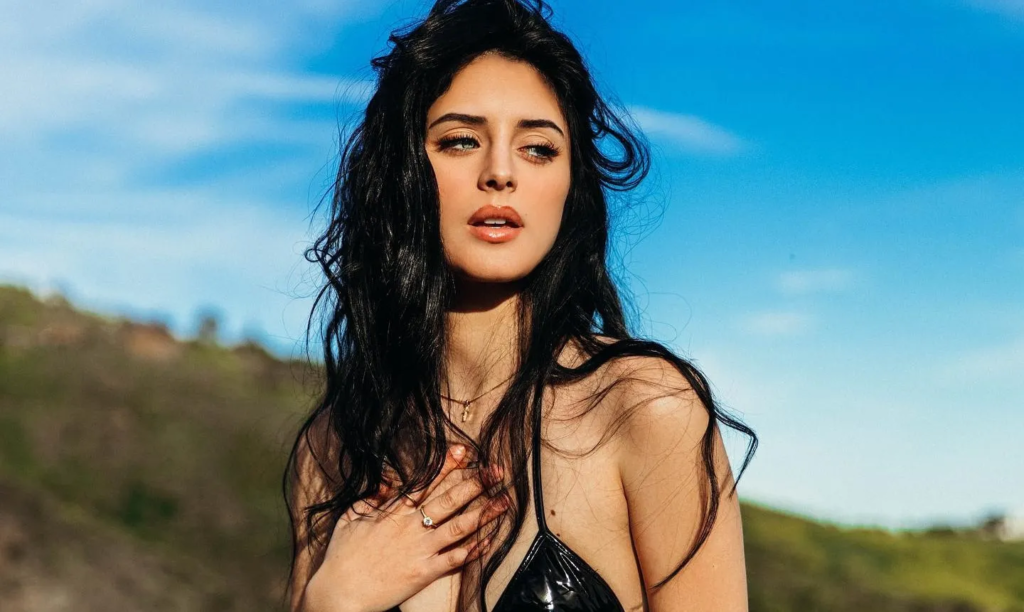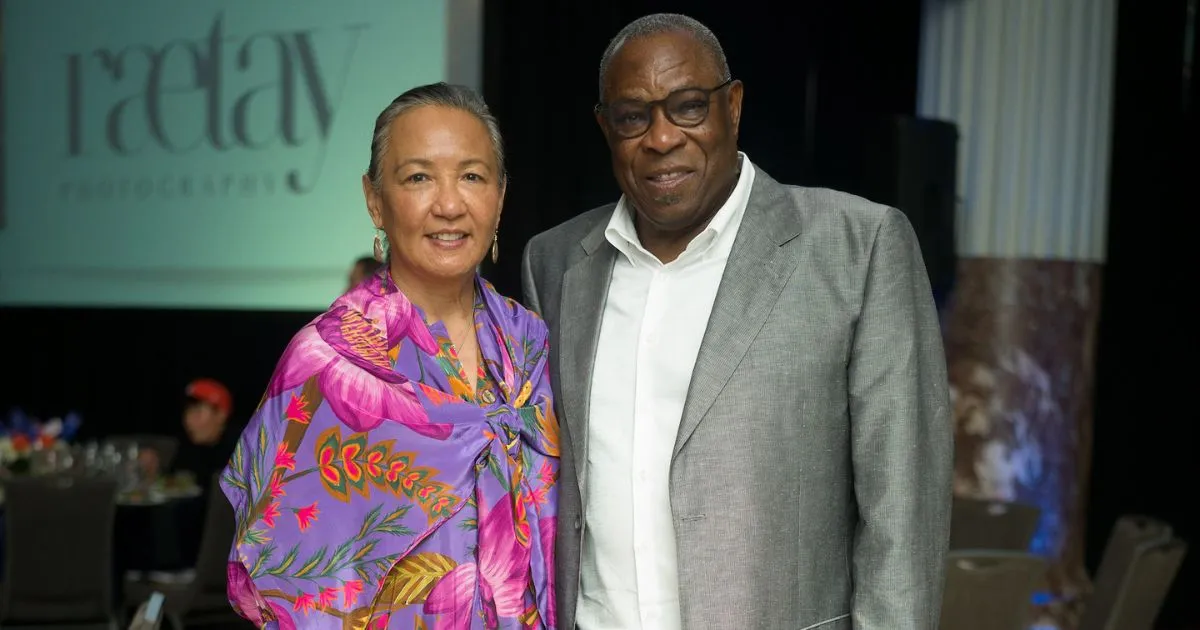Camilla Araujo In today’s digital world, the issue of privacy violations, especially in the form of leaks involving public figures, has become an increasingly prominent topic. One of the more recent incidents to capture public attention is the name “Camilla Araujo.” Araujo, a well-known figure in the entertainment and social media world, has been at the center of a controversy surrounding leaked content. In this article, we will dive deep into the “Camilla Araujo leaks” incident, exploring the events that led up to it, the emotional and legal repercussions, and the broader implications for digital privacy in the age of social media.
Who is Camilla Araujo?
1. Biography of Camilla Araujo
Camilla Araujo is a prominent figure known for her work in [insert industry or profession here]. Born on [insert birth date], in [insert birthplace], she has quickly risen to fame due to her [insert notable achievements or traits].
| Personal Data | Details |
| Name | Camilla Araujo |
| Date of Birth | May 1, 2002 |
| Place of Birth | 22 years old |
| Profession | Influencers |
| Notable Works | Model |
Before delving into the specifics of the leaks, it’s essential to understand who Camilla Araujo is and why she is a public figure.
A Rising Star in the Social Media World
Camilla Araujo is a Brazilian influencer and model who has made a name for herself on platforms like Instagram, where she shares lifestyle, fashion, and fitness content. Known for her captivating looks and engaging personality, Araujo quickly amassed a significant following, making her a prominent figure within the influencer space.
Her popularity also transcends Instagram, as she collaborates with various brands and participates in campaigns, further solidifying her status as a social media influencer. However, as her online presence grew, so did the scrutiny and challenges that came with it.
What Makes the “Camilla Araujo Leaks” Controversial?
The “Camilla Araujo leaks” refers to a series of private, intimate photos and videos that were shared without her consent. These leaks quickly spread across various social media platforms and sparked intense discussions about privacy, consent, and the ethics of sharing intimate content without permission.
The event is particularly controversial because it highlights the vulnerability of public figures in an age where their personal lives are often under a digital microscope. The leak violated Araujo’s privacy and exposed her to unwarranted public scrutiny.
The Leak: What Happened?
Camilla Araujo’s leaked content was reportedly shared by unknown individuals, possibly hackers or malicious users, who obtained her private photos and videos. These materials were then uploaded onto various websites and social media platforms, making it difficult for Araujo to control her personal information. The leak quickly went viral, with people sharing and commenting on the content across forums, blogs, and social media channels.
The Nature of the Content
The leaked material reportedly included explicit images and videos, some of which were deeply personal and intimate. These types of leaks are often referred to as “revenge porn” or “cyber harassment,” as they typically involve the non-consensual sharing of explicit content with the intent to harm or embarrass the individual featured.
For someone like Camilla Araujo, who has built a public persona based on her image and reputation, these leaks are a personal violation and a professional setback. The breach of her privacy jeopardized Araujo’s reputation, which she had carefully cultivated over years of hard work.
How Did the Leaks Spread?
Once the private content was leaked, it spread rapidly across the internet, making it nearly impossible for Araujo to contain the situation. Social media platforms like Twitter, Reddit, Instagram, and niche websites became the primary channels for distributing the leaked images and videos. The viral nature of such content and the internet’s ability to amplify scandalous stories made it difficult for Araujo to regain control of her narrative.
Even though many fans and followers of Araujo offered their support, expressing outrage over the invasion of her privacy, the damage had already been done. For a public figure, the fear of such a leak is not only about the personal harm it causes but also the impact on their professional reputation.
The Emotional and Psychological Impact on Camilla Araujo
The emotional toll of having private content leaked is profound, especially for individuals in the public eye. Once the content spreads, it becomes nearly impossible to erase, leaving the person at the center of the scandal to navigate the emotional, psychological, and social consequences.
The Trauma of Public Humiliation
For Camilla Araujo, as for many victims of similar leaks, the emotional impact was likely overwhelming. Beyond the shock and humiliation of discovering the leak, Araujo had to contend with the subsequent public scrutiny and online harassment. This kind of trauma can have long-lasting effects on a person’s mental health, leading to feelings of shame, anxiety, depression, and isolation.
Damage to Reputation and Career
As a public figure, Araujo’s reputation is integral to her career. The leak violated her personal space and threatened to tarnish her professional image. This can be a significant setback for someone who works with brands and maintains an online presence. The leaked material often overshadows an individual’s professional accomplishments, reducing them to the scandal or controversy surrounding them.
Support and Backlash
In the wake of the leak, Araujo received mixed reactions from the public. While some individuals supported her, condemning the leak as an invasion of privacy, others used the incident to shame her further. Social media platforms can be a double-edged sword in such situations, as they amplify support and negativity.
Public figures who experience such leaks often find themselves in a difficult position—caught between the need to defend their privacy and the desire to preserve their public image. They struggle between staying silent, which might imply acceptance of the violation, and speaking out, which can expose them to even more criticism or unwanted attention.
Legal Ramifications of the Camilla Araujo Leak
When private content is leaked without consent, the perpetrators often face legal consequences. In many jurisdictions, sharing explicit content without permission is illegal, and victims can pursue legal action against those responsible.

Revenge Porn Laws and Legal Protections
Revenge porn, which involves the unauthorized sharing of intimate material with the intent to harm the victim, is illegal in many parts of the world. Countries like the United States, the UK, and Australia have implemented specific laws to address this issue. For example, several states have enacted laws that make distributing explicit content without consent illegal in the United States. Offenders may face criminal charges, including fines and imprisonment.
Depending on her country’s laws, Camilla Araujo may be able to pursue legal action against the perpetrators of the leak. However, holding those responsible accountable can be complex and time-consuming. Often, these cases involve identifying the individuals who distributed the content, which can be a significant challenge given the internet’s anonymity.
Legal Recourse for the Victims
In addition to criminal charges, Araujo could potentially pursue civil action against the individuals responsible for the leak. Civil lawsuits can help victims of privacy violations seek financial compensation for the harm caused by the leak. In some cases, victims can also seek injunctive relief, a legal order requiring the perpetrators to stop distributing the content.
While legal action can provide some recourse, the process is not always straightforward, and many victims of leaked content opt not to pursue it due to the emotional toll or the difficulty of proving the identity of those responsible.
The Role of Social Media Platforms in Addressing Leaks
The role of social media platforms in preventing and addressing leaks is a topic of ongoing debate. While these platforms provide users with a way to share content, they also protect users’ privacy and ensure that harmful content is removed swiftly.

Reporting and Removing Leaked Content
Most major social media platforms, including Facebook, Twitter, and Instagram, offer reporting mechanisms that allow users to flag inappropriate or harmful content. When a leak occurs, victims need to report unauthorized content as quickly as possible. However, the response time can vary depending on the platform, and sometimes, the content remains accessible for longer than it should.
Platform Accountability
One of the critical discussions in the aftermath of the Camilla Araujo leaks—and similar incidents—is the responsibility of platforms to prevent these types of violations in the first place. Should social media networks do more to monitor and filter out explicit content before it is posted? Should there be stricter regulations for uploading intimate material, mainly when it involves non-consensual sharing? These are questions that have yet to be fully answered.
For victims like Araujo, these platforms can either help mitigate the harm caused by the leak or exacerbate the issue by allowing the content to circulate unchecked.
Broader Implications for Digital Privacy
The Camilla Araujo leaks are part of a more significant digital privacy violation trend that has affected countless individuals worldwide. In an age where almost everyone has a social media profile and can share content online, safeguarding privacy has become an increasingly difficult challenge.

The Need for Stronger Digital Privacy Protections
The Camilla Araujo incident underscores the need for more robust digital privacy laws and protections. Governments and tech companies must work together to create frameworks that protect individuals’ personal and private information from malicious actors.
The Importance of Consent
Another key takeaway from the Araujo leaks is the importance of consent in the digital world. Individuals must be educated about the ethics of sharing incredibly intimate content. Consent should be a fundamental part of digital interactions, and violating it can have far-reaching consequences for individuals and society.
Conclusion
The Camilla Araujo leaks serve as a sobering reminder of the vulnerabilities of being a public figure in the digital age. While the emotional, legal, and social repercussions of such a leak can be profound, they also highlight the need for stronger protections and a more ethical approach to online behavior. For Araujo and others affected by similar incidents, the road to healing.




